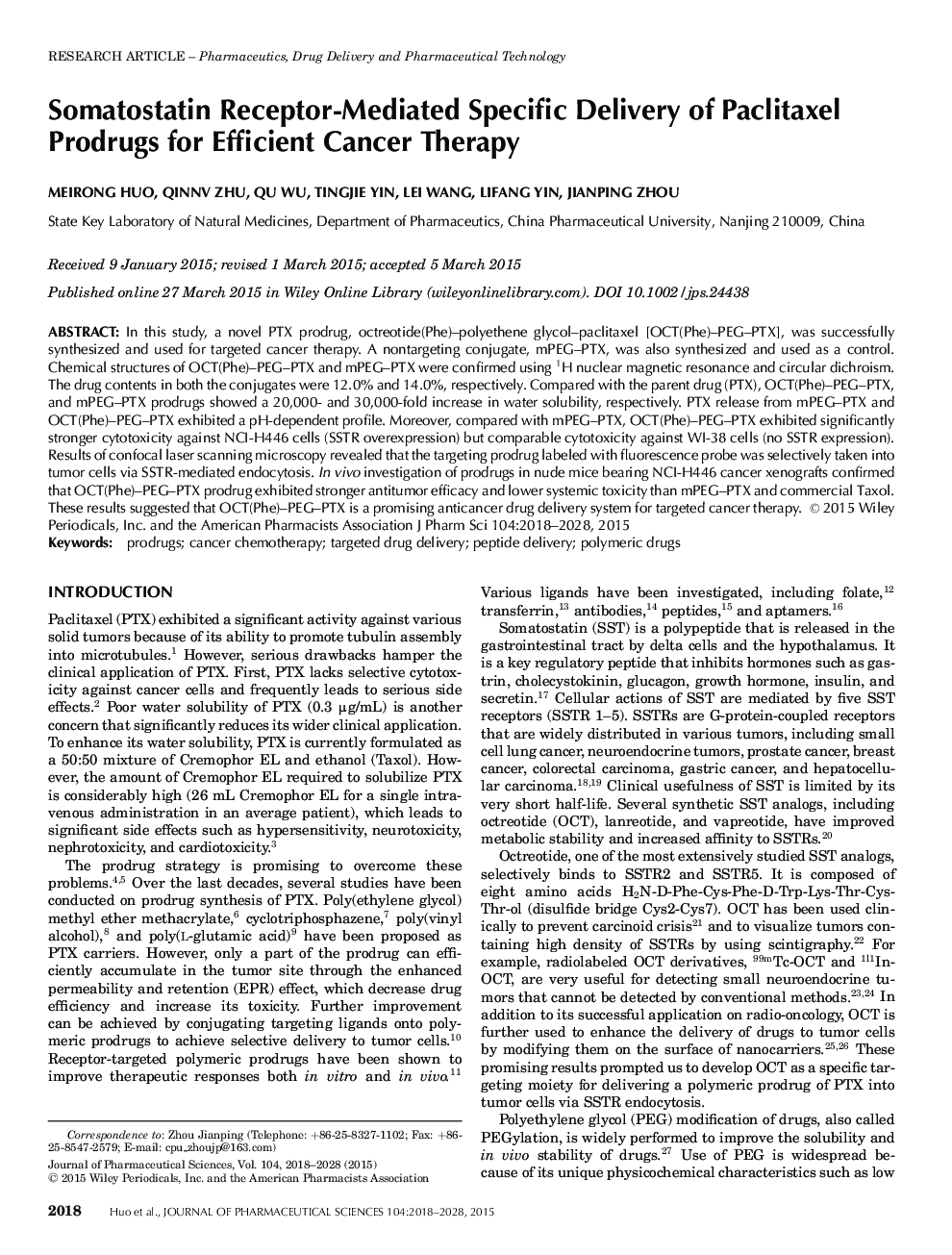| Article ID | Journal | Published Year | Pages | File Type |
|---|---|---|---|---|
| 2484599 | Journal of Pharmaceutical Sciences | 2018 | 11 Pages |
Abstract
In this study, a novel PTX prodrug, octreotide(Phe)-polyethene glycol-paclitaxel [OCT(Phe)-PEG-PTX], was successfully synthesized and used for targeted cancer therapy. A nontargeting conjugate, mPEG-PTX, was also synthesized and used as a control. Chemical structures of OCT(Phe)-PEG-PTX and mPEG-PTX were confirmed using 1 H nuclear magnetic resonance and circular dichroism. The drug contents in both the conjugates were 12.0% and 14.0%, respectively. Compared with the parent drug (PTX), OCT(Phe)-PEG-PTX, and mPEG-PTX prodrugs showed a 20,000- and 30,000-fold increase in water solubility, respectively. PTX release from mPEG-PTX and OCT(Phe)-PEG-PTX exhibited a pH-dependent profile. Moreover, compared with mPEG-PTX, OCT(Phe)-PEG-PTX exhibited significantly stronger cytotoxicity against NCI-H446 cells (SSTR overexpression) but comparable cytotoxicity against WI-38 cells (no SSTR expression). Results of confocal laser scanning microscopy revealed that the targeting prodrug labeled with fluorescence probe was selectively taken into tumor cells via SSTR-mediated endocytosis. In vivo investigation of prodrugs in nude mice bearing NCI-H446 cancer xenografts confirmed thatOCT(Phe)-PEG-PTX prodrug exhibited stronger antitumor efficacy and lower systemic toxicity than mPEG-PTX and commercial Taxol. These results suggested that OCT(Phe)-PEG-PTX is a promising anticancer drug delivery system for targeted cancer therapy.
Related Topics
Health Sciences
Pharmacology, Toxicology and Pharmaceutical Science
Drug Discovery
Authors
Meirong Huo, Qinnv Zhu, Qu Wu, Tingjie Yin, Lei Wang, Lifang Yin, Jianping Zhou,
